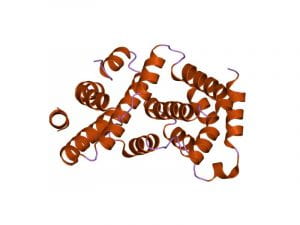Great news to those infected with Covid-19 – scientists have discovered a new (if risky) way to ameliorate the disease’s advanced symptoms.
According to Scientific American, several studies have concluded that immune proteins could suppress the potentially fatal “viral replication” that results from Covid-19. The proteins in question, called “interferons,” are released in “response to virus infection” and “induce numerous molecular changes that ‘interfere’ with cellular functions in order to prevent inflammation (according to ScienceDirect) .” Such a function could be likened to the way that enzymes in the lysosome break down foreign material, viruses, and bacteria.
However, similar to lysosomes, the overpopulation or malfunctioning of interferons can have undesired consequences. Described by immunologist Eui-Cheol Shin as “a double-edged sword,” interferons may inadvertently worsen a patient’s deadly respiratory problems or lead to a dangerous disease called “children’s interferonopathies.”
Furthermore, several health organizations have warned against the use of interferons in treatments for the coronavirus. Citing “insufficient data to recommend either for or against the use of” the protein, the NIH does not endorse the proposal being practiced outside of extensive clinical trials. With major powers in the public health domain forbidding interferon-based treatments, it appeared that in-depth studies were needed to make a case for the idea.
Luckily, Shin and his fellow scientists were prepared to do just that. Research teams in France and South Korea conducted blood tests and RNA sequencing, respectively. The results of both tests were, to put it bluntly, not very conclusive. In the former experiment, patients with advanced Covid symptoms were surprisingly discovered to have a rather low count of interferons; conversely, the findings of the latter study showed that the interferon count of patients affected by severe symptoms was actually quite high compared to patients with mild symptoms.
At first, this clash in results suggested that determining the full effect of interferons in cells would be extremely difficult. However, a clinical trial conducted by Eleanor Fish (an immunologist at the University of Toronto) showed that “[interferons] helped clear viral infections almost seven days sooner on average than people given arbidol hydrochloride, a drug thought to block viral entry to cells.” This conclusion would be a huge win in the rapidly escalating fight against Covid-19. Despite the notion in sports that an interference is an unfair foul, the interferons might just be the interference needed to save countless lives.



Leave a Reply